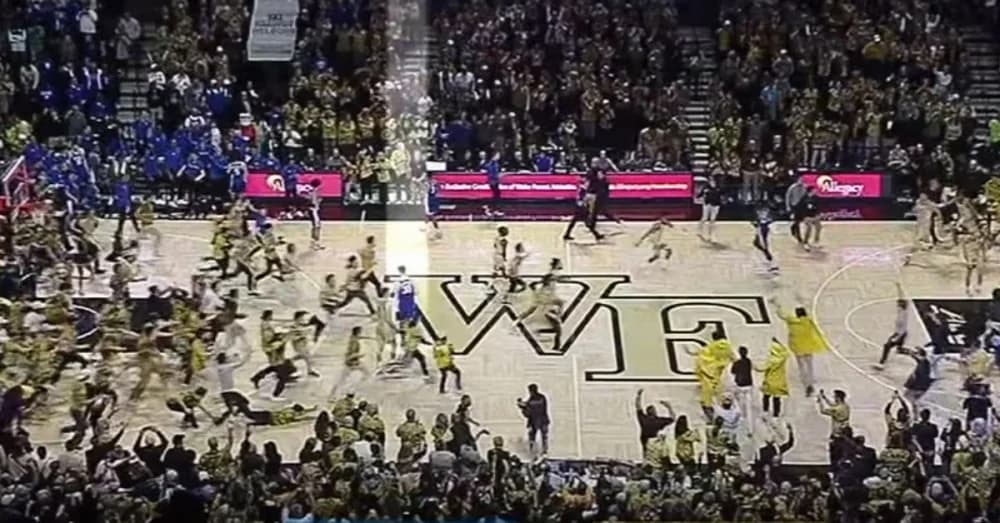Richard Jefferson Criticizes Jay Bilas’ Court-Storming Remarks

Former NBA star Richard Jefferson didn’t hold back in criticizing his ESPN colleague Jay Bilas for suggesting arrests as consequences for court-storming incidents. During an episode of “NBA Today,” Jefferson slammed Bilas’ proposal, labeling it as “the dumbest thing” he had ever heard.
Jefferson’s Disagreement with Bilas
Jefferson, drawing from his experience as a collegiate and professional basketball player, vehemently disagreed with Bilas’ perspective. He highlighted the tradition of court-storming in college sports and argued against the notion of arresting fans for celebrating upset victories.
The former NBA player acknowledged that having the court stormed on him as a player was not enjoyable but emphasized the significance of court-storming in college basketball and football. He pointed out that such celebrations have been a part of the sports culture for decades and expressed disbelief at Bilas’ suggestion to curb them with arrests.
Jefferson questioned the practicality and fairness of detaining or citing thousands of fans for storming the court, suggesting that it was an overreaction to isolated incidents. He defended the right of passionate fans to celebrate their team’s victories, particularly against powerhouse programs.
Critique of Media’s Role
Moreover, Jefferson criticized the media’s role in promoting court-storming incidents by showcasing them prominently. He argued that the media’s coverage contributed to the perpetuation of such celebrations and suggested a collective responsibility in addressing the issue.
Practicality of Bilas’ Proposal
In response to Bilas’ proposal to detain fans on the court, Jefferson asserted that such measures would not effectively deter future court stormings. He emphasized the need for better player protection measures while acknowledging the challenges in implementing comprehensive solutions.
The discussion surrounding court-storming gained renewed attention following an incident involving Duke star Kyle Filipowski, who required assistance off the court after a recent game. While acknowledging the risks associated with courtstorming, Richard Jefferson underscored the cultural significance of such celebrations and cautioned against knee-jerk reactions to isolated incidents.





